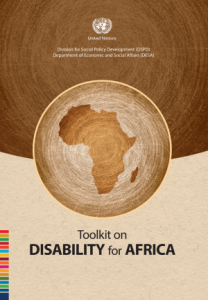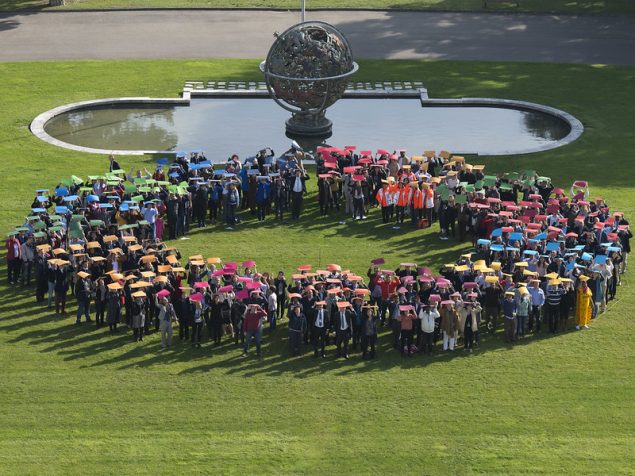- Main page: Handbook for Parliamentarians
- Habilitation and rehabilitation
- Accessibility
- Education
- The Cost of inclusive education
- Work and employment
- Legal capacity and supported decision-making
LEGAL CAPACITY AND SUPPORTED DECISION-MAKING
Imagine having your capacity to make decisions, sign contracts, vote, defend your rights in court or choose medical treatments taken away simply because you have a disability. For many persons with disabilities, this is a fact of life, and the consequences can be grave. When individuals lack the legal capacity to act, they are not only robbed of their right to equal recognition before the law, they are also robbed of their ability to defend and enjoy other human rights. Guardians and tutors acting on behalf of persons with disabilities sometimes fail to act in the interests of the individual they are representing; worse, they sometimes abuse their positions of authority, violating the rights of others.
Article 12 of the Convention recognizes that persons with disabilities have legal capacity on an equal basis with others. In other words, an individual cannot lose his/her legal capacity to act simply because of a disability. (However, legal capacity can still be lost in situations that apply to everyone, such as if someone is convicted of a crime.)
The Convention recognizes that some persons with disabilities require assistance to exercise this capacity, so States must do what they can to support those individuals and introduce safeguards against abuse of that support. Support could take the form of one trusted person or a network of people; it might be necessary occasionally or all the time.
With supported decision-making, the presumption is always in favour of the person with a disability who will be affected by the decision. The individual is the decision maker; the support person(s) explain(s) the issues, when necessary, and interpret(s) the signs and preferences of the individual. Even when an individual with a disability requires total support, the support person(s) should enable the individual to exercise his/her legal capacity to the greatest extent possible, according to the wishes of the individual. This distinguishes supported decision-making from substituted decision-making, such as advance directives and legal mentors/friends, where the guardian or tutor has court-authorized power to make decisions on behalf of the individual without necessarily having to demonstrate that those decisions are in the individual’s best interest or according to his/her wishes. Paragraph 4 of article 12 calls for safeguards to be put in place to protect against abuse of these support mechanisms.
Supported decision-making can take many forms. Those assisting a person may communicate the individual’s intentions to others or help him/her understand the choices at hand. They may help others to realize that a person with significant disabilities is also a person with a history, interests and aims in life, and is someone capable of exercising his/her legal capacity.
While some good models of support networks exist, there is generally no clear policy framework; guardianship laws and practice still dominate. It is sometimes difficult to designate support networks, particularly when an individual cannot identify a trusted person or people. In addition, people in institutional settings are often denied support, even when it is available. Establishing comprehensive support networks requires effort and financial commitment, although existing models of guardianship can be equally costly. Supported decision-making should thus be seen as a redistribution of existing resources, not an additional expense.
SUPPORTED DECISION-MAKING IN PRACTICE
The Province of British Columbia in Canada is one of the leading jurisdictions in incorporating supported decision-making into law, policy and practice. An individual with disabilities can enter a “representation agreement” with a support network. The agreement is a sign to others, including doctors, financial institutions and service providers, that the individual has given the network the authority to assist him/her in making decisions and represent him/her in certain matters.
One of the main innovations in the legislation is that persons with more significant disabilities can enter into representation agreements with a support network simply by demonstrating “trust” in the designated supporters. A person does not need to prove legal competency under the usual criteria, such as having a demonstrated capacity to understand relevant information, appreciate consequences, act voluntarily and communicate a decision independently, in order to enter this agreement.
A number of individuals and support networks have entered representation agreements as an alternative to guardianship or other forms of substitute decision-making. A community-based Representation Agreement Resource Centre assists in developing and sustaining support networks by providing information, publications, workshops and advice. The Centre also oversees a registry in which a network can post an agreement for other parties to view if required before entering a contract with the individual. For more information see http://www.nidus.ca.
CHECKLIST FOR PARLIAMENTARIANS
What I can do to ensure that persons with disabilities can exercise their legal capacity
- Consult with civil society organizations to see whether supported decision-making exists in your constituency.
- Examine laws on guardianship and consider whether laws and policies promote supported decision-making and respect the legal capacity of persons with disabilities.
- Raise the issue of supported decision-making, and encourage the development of programmes to promote supported decision-making, in parliament.
- Visit psychiatric institutions to see what support networks exist.
- Hold public meetings in constituencies to hear about the experiences of persons with disabilities concerning legal capacity and support.
- Gather examples of good practices in supported decision-making and share them with parliamentarians in other countries.
- Ensure that parliamentary committees on the Convention include legal capacity and supported decision-making on their agendas.
- Propose the development of a national framework for supported decision-making consistent with the United Nations Convention.




